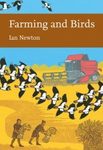![Rangeland Systems Rangeland Systems]()
Click to have a closer look
About this book
Contents
Customer reviews
Biography
Related titles
About this book
Rangeland Systems: Processes, Management and Challenges provides an unprecedented synthesis of the current status of scientific and management knowledge regarding global rangelands and the major challenges that confront them. It has been organized around three major themes. The first summarizes the conceptual advances that have occurred in the rangeland profession. The second addresses the implications of these conceptual advances to management and policy. The third assesses several major challenges confronting global rangelands in the 21st century.
Rangeland Systems: Processes, Management and Challenges will compliment applied range management textbooks by describing the conceptual foundation on which the rangeland profession is based. It has been written to be accessible to a broad audience, including ecosystem managers, educators, students and policy makers. The content is founded on the collective experience, knowledge and commitment of 80 authors who have worked in rangelands throughout the world. Their collective contributions indicate that a more comprehensive framework is necessary to address the complex challenges confronting global rangelands. Rangelands represent adaptive social-ecological systems, in which societal values, organizations and capacities are of equal importance to, and interact with, those of ecological processes. A more comprehensive framework for rangeland systems may enable management agencies, and educational, research and policy making organizations to more effectively assess complex problems and develop appropriate solutions.
Contents
1. Conceptual development toward a rangeland systems framework
Part: 1 Processes
2. Woody plant encroachment
3. Ecohydrology: processes and implications for rangelands
4. Soil and belowground processes
5. Structural heterogeneity as the basis for rangeland management
6. Non-equilibrium ecology and resilience theory
7. Ecological consequences of climate change on rangelands
Part: 2 Management
8. Rangelands as social-ecological systems
9. State and transition models: theory, applications, and challenges
10. Livestock production systems
11. Adaptive management of rangeland systems
12. Managing the livestock-wildlife interface on rangelands
Part: 3 Challenges
13. Invasive plant species and novel rangeland systems
14. Rangeland ecosystem services: nature's supply and humans' demand
15. Managing climate change risks in rangeland systems
16. Monitoring protocols: options, approaches, implementation, benefits
17. Rangeland systems in developing nations: conceptual advances and societal implications
Customer Reviews
Biography
David D. Briske is the T.M. O'Connor Professor in the Department of Ecosystem Science & Management at Texas A&M University, U.S.A. He earned a B.A. in Botany from North Dakota State University and a Ph.D. from Colorado State University. His scholarship and pedagogy emphasize the ecological function and management strategies of global rangelands. He has served as editor of the book Conservation Benefits of Rangeland Practices and the journal Rangeland Ecology & Management.












































